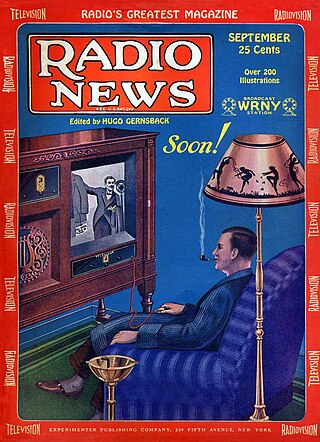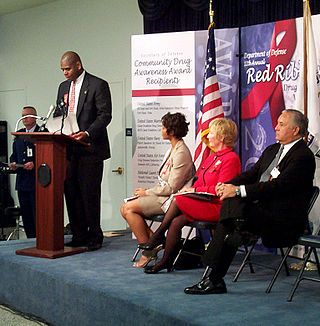
A television advertisement is a span of television programming produced and paid for by an organization. It conveys a message promoting, and aiming to market, a product, service or idea. Advertisers and marketers may refer to television commercials as TVCs.

Creature Comforts is a British adult stop-motion comedy mockumentary franchise originating in a 1989 British humorous animated short film of the same name. The film matched animated zoo animals with a soundtrack of people talking about their homes, making it appear as if the animals were being interviewed about their living conditions. It was created by Nick Park and Aardman Animations. The film later became the basis of a series of television advertisements for the electricity boards in the United Kingdom, and in 2003, a television series in the same style was released. An American version of the series was also made.

Tango is a soft drink originating, and primarily sold, in the United Kingdom and Ireland. It was first launched by Corona in 1950. Corona was purchased by the Beecham Group in 1958, and Corona Soft Drinks by Britvic in 1987.
A public service announcement (PSA) is a message in the public interest disseminated by the media without charge to raise public awareness and change behavior. In the UK, they are generally called a public information film (PIF); in Hong Kong, they are known as an announcement in the public interest (API).

McGruff the Crime Dog is an anthropomorphic animated bloodhound created by Dancer Fitzgerald Sample advertising executive Jack Keil through the Ad Council and later the National Crime Prevention Council to increase crime awareness and personal safety in the United States. McGruff costumes are used by police outreach efforts, often with children. McGruff was created in 1979 and debuted in 1980 with a series of public service announcements educating citizens on personal security measures, such as locking doors and putting lights on timers, in order to reduce crime. His name was selected as part of a nationwide contest in July 1980.

The Medellín Cartel was a powerful and highly organized Colombian drug cartel and terrorist organization originating in the city of Medellín, Colombia that was founded and led by Pablo Escobar. It is often considered the first major "drug cartel" and was referred to as such due to the organization's upper echelons being built on a partnership between multiple Colombian traffickers operating alongside Escobar. Included were Jorge Luis Ochoa Vásquez, Juan David Ochoa Vásquez, José Gonzalo Rodríguez Gacha and Carlos Lehder. The cartel operated from 1972 to 1993 in Bolivia, Colombia, Panama, Central America, Peru, the United States, as well as in Canada. Although the organization started out as a smuggling network in the early 1970s, it wasn't until 1976 that the organization turned to trafficking cocaine. At the height of its operations, the Medellín Cartel smuggled multiple tons of cocaine each week into countries around the world and brought in up to US$60 million daily in drug profits.
Pablo is a Spanish form of the name Paul.

Smash is a brand of Instant mashed potatoes in the United Kingdom. It was launched in the United Kingdom in the 1960s by Cadbury, which was primarily a manufacturer of confectionery at the time. Smash was reasonably successful.

A mule or courier is someone who personally smuggles contraband across a border for a smuggling organization. The organizers employ mules to reduce the risk of getting caught themselves. Methods of smuggling include hiding the goods in vehicles or carried items, attaching them to one's body, or using the body as a container.

The United States Central Intelligence Agency (CIA) has been accused of involvement in drug trafficking. Books and investigations on the subject that have received general notice include works by the historian Alfred McCoy, professor and diplomat Peter Dale Scott, journalists Gary Webb and Alexander Cockburn, and writer Larry Collins. These claims have led to investigations by the United States government, including hearings and reports by the United States House of Representatives, Senate, Department of Justice, and the CIA's Office of the Inspector General.

Dulux is an internationally available brand of architectural paint originated from the United Kingdom. The brand name Dulux has been used by both Imperial Chemical Industries (ICI) and DuPont since 1931 and was one of the first alkyd-based paints. It is produced by AkzoNobel although the United States markets are now served by PPG Industries.
FRANK is a national anti-drug advisory service jointly established by the Department of Health and Home Office of the British government in 2003. It is intended to reduce the use of both legal and illegal drugs by educating teenagers and adolescents about the potential effects of drugs. It has run many media campaigns on television, radio and the internet.

Gorilla is a British advertising campaign launched by the advertising agency Fallon London on behalf of Cadbury Schweppes in 2007, to promote Cadbury Dairy Milk brand chocolate. The centrepiece of the campaign was a 90-second television and cinema advertisement, supported by related media purchases in billboards, magazines and newspapers, as well as sponsored events and an organised internet presence. The total cost of the campaign is estimated at £6.2 million. The central television advertisement was created and directed by Juan Cabral and starred the actor Garon Michael.
Bet on Black, occasionally referred to as "Snail Race", is an advertising campaign run in 2000 by Diageo to promote Guinness-brand stout in the United Kingdom. The piece, directed by Frank Budgen, follows a snail race taking place in a town of Latin American appearance. It is the third piece of the Good things come to those who wait campaign launched by Abbott Mead Vickers BBDO in 1996, following on from Swimblack (1998) and Surfer (1999). The music in the advertisement is "Barbarabateri" by Beny More with Pérez Prado and his orchestra. Prado's music has also been in used in previous Guinness advertisements such as the successful Anticipation and Swimblack.

The Advertising Standards Authority (ASA) is the self-regulatory organisation of the advertising industry in the United Kingdom. The ASA is a non-statutory organisation and so cannot interpret or enforce legislation. However, its code of advertising practice broadly reflects legislation in many instances. The ASA is not funded by the British government, but by a levy on the advertising industry.
Reassuringly Expensive was the advertising slogan for Stella Artois in the United Kingdom from 1982 until 2007. The 1990s UK television advertising campaigns became known for their distinctive style of imitating European cinema and their leitmotif taken from the score of Jean de Florette, inspired, in turn, by Giuseppe Verdi's La forza del destino. The TV campaigns began in 1991 with a series of adverts based on Jean de Florette, directed by the British duo Anthea Benton and Vaughan Arnell, moving on to other genres including war movies, silent comedy and even surrealism. They have used notable movie directors such as Jonathan Glazer, and their aim was to portray the drink in a context of sophisticated European culture.
The depiction of Colombia in popular culture, especially the portrayal of Colombian people in film and fiction, has been asserted by Colombian organizations and government to be largely negative and has raised concerns that it reinforces, or even engenders, societal prejudice and discrimination due to association with narco-trafficking, terrorism, illegal immigration and other criminal elements, poverty and welfare. The Colombian government-funded Colombia is Passion advertisement campaign as an attempt to improve Colombia's image abroad, with mixed results hoping for more positive views on Colombia.

The National Drug Law Enforcement Agency (NDLEA) is a federal law enforcement agency in Nigeria under the Federal Ministry of Justice charged with eliminating the growing, processing, manufacturing, selling, exporting, and trafficking of hard drugs. The agency was established by Decree Number 48 of 1989. The NDLEA is present in international airports, seaports, and border crossings. The NDLEA also targets the leaders of narcotics and money laundering organizations.

Partnership to End Addiction, first known as the Partnership for a Drug-Free America (PDFA) then later as the Partnership at DrugFree.org, and The Partnership for Drug-Free Kids, is a New York City-based non-profit organization which runs campaigns to prevent teenage drug and alcohol use in the United States. It is notable for mobilizing volunteer talent "against a single social problem" to help young people "live their lives free of drug and alcohol abuse," and to assist parents in prevention efforts. The organization gets input from scientists, specialists in communication, researchers and others, and offers resources for parents and teenagers on its website. It focused efforts to "unsell" illegal drugs such as cocaine, heroin, prescription drugs, marijuana, MDMA, and others, as well as discouraging the use of alcohol and nitrous oxide, by breaking away from a standard public service approach and doing a coordinated media campaign. While the organization has focused drug prevention advertising on broadcast media such as television, there are signs in recent years that it is shifting media support to emerging channels such as video-on-demand, digital technology and particularly the Internet. The organization's marketing experience was written up as a 58-page marketing "case study" for study by students at the Harvard Business School. The organization is perhaps best known for its iconic TV ad This Is Your Brain on Drugs, but it had made over 3,000 ads by 2011 while pursuing a flexible strategy.
Orange Man is a British television advertisement for the soft drink Tango Orange. Created by advertising agency HHCL, a longtime collaborator of Tango. The advertisement was produced in 1991 and aired in 1992, and was the first in the brand's "You Know When You've Been Tango'd" campaign that would continue until 1996 before returning for several years in the 2000s.













